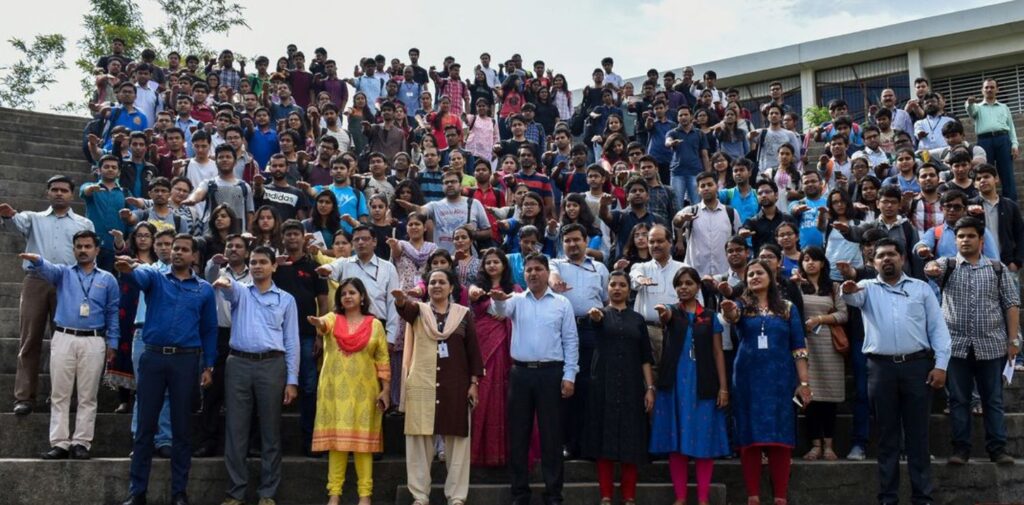The Pledge of Allegiance is a powerful expression of loyalty and patriotism, particularly in countries like the United States. While the concept of pledging allegiance to one’s country may be most strongly associated with the U.S., the idea of honoring one’s nation and its values is a sentiment that resonates universally. In India, the Pledge of Allegiance holds its own significance, even though it may not be celebrated on a specific day like the U.S. does on “Pledge of Allegiance Day” (28th December). However, such an occasion could provide an opportunity to reflect on the importance of national unity, pride, and the sense of belonging that the pledge instills in the hearts of citizens.
In this article, we explore the meaning of the Pledge of Allegiance, its relevance to both U.S. and Indian cultures, and how such a day could serve as a reminder for people in India to embrace their national identity and uphold the values of their country.
Understanding the Pledge of Allegiance
The Pledge of Allegiance is a short but powerful oath that expresses loyalty to a country and its flag. It was first written by Francis Bellamy in 1892 in the United States, and its words have inspired generations of people to reflect on the importance of national unity. The U.S. version of the pledge goes as follows:
“I pledge allegiance to the flag of the United States of America, and to the republic for which it stands, one nation, under God, indivisible, with liberty and justice for all.”
Each phrase of the Pledge emphasizes important values like unity, freedom, and justice. The words “under God” reflect the nation’s recognition of a higher power, while “indivisible” highlights the importance of national unity, and “with liberty and justice for all” reminds citizens of the equal rights guaranteed to all.

The Significance of a Pledge to the Nation
The act of taking a pledge serves as a public affirmation of one’s commitment and responsibility to the country. It is a reminder that, as citizens, everyone has a role in contributing to the country’s well-being and upholding its values.
In India, we have our own version of pledges that are recited at schools, government offices, and events, although it is not associated with a specific day of national celebration. The National Pledge of India is recited as an expression of loyalty and patriotism, and its lines read as follows:
“India is my country. All Indians are my brothers and sisters. I pledge to dedicate myself to the service of my country and my people. I promise to work hard and with honesty to achieve the goals set by the nation.”
This pledge emphasizes the unity of India’s people, the importance of service to the nation, and the need for hard work and honesty to help the country progress. The Indian pledge is a reminder that every citizen is responsible for contributing to the nation’s growth and prosperity.

The Role of the Pledge in Fostering Patriotism
Patriotism is often linked to an emotional connection to one’s country. A pledge acts as a public declaration of love for the country, creating a sense of shared responsibility. Whether it’s the American Pledge of Allegiance or India’s National Pledge, such oaths help instill a sense of unity and belonging. This is particularly important in countries as diverse as India, where the population is made up of various religions, cultures, and languages.
Reciting a pledge fosters a sense of collective identity. It reinforces the idea that, regardless of our differences, we are all united by a common purpose—to serve our country and contribute to its progress. In India, this is crucial because the country is a rich mosaic of different communities and identities, and a shared sense of belonging can bridge gaps between people.
The Importance of Pledge of Allegiance Day
The concept of “Pledge of Allegiance Day,” celebrated in countries like the United States, is an event that encourages people to reflect on the values their country represents. While the idea of such a day is not specifically celebrated in India, the growing importance of national pride and unity makes it a relevant idea.
Celebrating a Pledge of Allegiance Day in India could serve as an opportunity to:
- Reinforce National Unity: India’s strength lies in its unity amid diversity. On a designated day, citizens could come together to pledge allegiance to the nation, focusing on the common ideals that unite the people, such as democracy, secularism, and justice.
- Promote National Pride: Events that promote national pride can help individuals appreciate the country’s history, achievements, and potential. Recognizing the significance of the pledge encourages citizens to reflect on the importance of contributing to the nation’s progress.
- Celebrate Citizenship: Such a day could also serve as an educational opportunity for citizens, especially the younger generation, to learn about the responsibilities of being an Indian citizen. It could be a reminder that each individual plays a crucial role in shaping the future of the country.
- Emphasize Core Values: A dedicated day could also focus on discussing the core values of the nation, such as freedom, equality, and justice. These are values that resonate with people across India, regardless of their background, and the pledge serves as a constant reminder of the nation’s commitment to these ideals.
- Involve in Social Causes: On Pledge of Allegiance Day, citizens could be encouraged to take part in social causes such as education, cleanliness drives, or helping those in need. This would make the day not only a symbolic expression of patriotism but also an active demonstration of service to the country.

Why Pledge of Allegiance Day Matters
The Pledge of Allegiance, whether in the context of the United States or India, represents much more than just a few words. It signifies a citizen’s commitment to the values of the nation. It reminds people that patriotism is not just about love for the country but also about actively contributing to its development.
For India, a day dedicated to the Pledge of Allegiance could inspire citizens to strive for a stronger, more inclusive, and more prosperous nation. It would remind everyone, young and old, that India’s strength lies in its unity. Each citizen has a role to play in making India a better place, and the pledge serves as a call to action.
Conclusion
The idea of Pledge of Allegiance Day can hold great significance in India, a country that thrives on diversity yet is bound together by a strong sense of unity. Celebrating this day would remind Indians of their shared values and their collective responsibility to help the nation grow. By embracing such a day, India could further nurture patriotism, national pride, and a commitment to progress. After all, the future of the nation lies in the hands of its citizens, and a shared pledge can go a long way in uniting the people to work together for the betterment of India.




